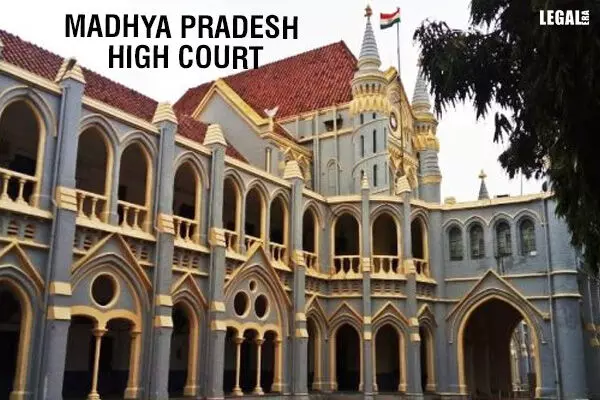- Home
- News
- Articles+
- Aerospace
- AI
- Agriculture
- Alternate Dispute Resolution
- Arbitration & Mediation
- Banking and Finance
- Bankruptcy
- Book Review
- Bribery & Corruption
- Commercial Litigation
- Competition Law
- Conference Reports
- Consumer Products
- Contract
- Corporate Governance
- Corporate Law
- Covid-19
- Cryptocurrency
- Cybersecurity
- Data Protection
- Defence
- Digital Economy
- E-commerce
- Employment Law
- Energy and Natural Resources
- Entertainment and Sports Law
- Environmental Law
- ESG
- FDI
- Food and Beverage
- Gaming
- Health Care
- IBC Diaries
- In Focus
- Inclusion & Diversity
- Insurance Law
- Intellectual Property
- International Law
- IP & Tech Era
- Know the Law
- Labour Laws
- Law & Policy and Regulation
- Litigation
- Litigation Funding
- Manufacturing
- Mergers & Acquisitions
- NFTs
- Privacy
- Private Equity
- Project Finance
- Real Estate
- Risk and Compliance
- Student Corner
- Take On Board
- Tax
- Technology Media and Telecom
- Tributes
- Viewpoint
- Zoom In
- Law Firms
- In-House
- Rankings
- E-Magazine
- Legal Era TV
- Events
- News
- Articles
- Aerospace
- AI
- Agriculture
- Alternate Dispute Resolution
- Arbitration & Mediation
- Banking and Finance
- Bankruptcy
- Book Review
- Bribery & Corruption
- Commercial Litigation
- Competition Law
- Conference Reports
- Consumer Products
- Contract
- Corporate Governance
- Corporate Law
- Covid-19
- Cryptocurrency
- Cybersecurity
- Data Protection
- Defence
- Digital Economy
- E-commerce
- Employment Law
- Energy and Natural Resources
- Entertainment and Sports Law
- Environmental Law
- ESG
- FDI
- Food and Beverage
- Gaming
- Health Care
- IBC Diaries
- In Focus
- Inclusion & Diversity
- Insurance Law
- Intellectual Property
- International Law
- IP & Tech Era
- Know the Law
- Labour Laws
- Law & Policy and Regulation
- Litigation
- Litigation Funding
- Manufacturing
- Mergers & Acquisitions
- NFTs
- Privacy
- Private Equity
- Project Finance
- Real Estate
- Risk and Compliance
- Student Corner
- Take On Board
- Tax
- Technology Media and Telecom
- Tributes
- Viewpoint
- Zoom In
- Law Firms
- In-House
- Rankings
- E-Magazine
- Legal Era TV
- Events
Madhya Pradesh High Court: Challenging Arbitration Orders Requires Proof of Exceptional Circumstances

Madhya Pradesh High Court: Challenging Arbitration Orders Requires Proof of Exceptional Circumstances
The Madhya Pradesh High Court, consisting of Justices Sushrut Arvind Dharmadhikari and Devnarayan Mishra, declined to intervene in a case involving the dismissal of an application submitted to an arbitrator by the petitioner. This case revolved around Section 16(3) of the Arbitration and Conciliation Act, 1996.
The Court determined that not every order passed by an arbitral tribunal automatically warrants a challenge via a writ petition under Articles 226/227 of the Indian Constitution. Such extraordinary legal action is justified only when the petition demonstrates "exceptional circumstances" or "bad faith" on the other party's side.
Therefore, the Court advised the petitioner to pursue remedies after the final award from the arbitrator is issued.
M/s Master Point (the Petitioner) and Sandhya Chouhan (the Respondent) partnered for business, jointly purchasing an under-constructed shed in 2005, allegedly funded solely by the Respondent. A dispute arose when the Respondent learned of the Petitioner firm's dissolution.
The Respondent claims her and her husband's signatures were obtained under false pretences, believing it was for a credit facility when the actual purpose was to dissolve the Petitioner firm. Seeking resolution, the Respondent filed a Section 11 petition under the Arbitration and Conciliation Act, 1996, leading to the appointment of Justice I.S. Shrivastava as the arbitrator.
During the arbitration, the Petitioner argued that the dispute involved fraud and a forged dissolution deed, making it non-arbitrable under Section 16(3) of the Act read with Section 32. However, the Arbitrator ruled that merely alleging fraud wouldn't negate the parties' agreement to arbitrate. Additionally, the Arbitrator found the Petitioner hadn't raised this objection at the first opportunity, barring them from doing so now under Section 4 of the Act. Dissatisfied, the Petitioner challenged this decision via a writ petition in the Madhya Pradesh High Court under Article 226 of the Indian Constitution.
The Respondent argued that the Arbitration and Conciliation Act does not offer a specific legal avenue to challenge the dismissal of an application made under Section 16(3) to the Arbitrator. They claimed the Petitioner lacked the authority to raise this issue until after the final award was issued. According to the Respondent, only an appeal under Section 34 after the final award could address such a challenge.
The Court started by referencing the earlier case of Suncity Dhoot Colonisers Pvt. Ltd. vs Ram Chandra Patidar [W.P. No. 28151/2023], where it established that not every arbitral tribunal decision can be challenged through a writ petition (under Articles 226 or 227 of the Constitution). This requires "exceptional circumstances" or proof of "bad faith" by the other party.
With this in mind, the Court ruled that challenging the dismissal of a Section 16 application under the Arbitration Act via a writ petition is only possible if the arbitral tribunal clearly lacked the authority to handle the case (known as "patent lack of inherent jurisdiction"). Here, the Court found no evidence of such a lack of jurisdiction.
Based on its observations, the High Court saw no justification for overriding the Arbitrator's decision using its writ powers. Instead, the Petitioner was allowed to pursue an appeal under Section 34 of the Act once the final award was issued. Consequently, the writ petition was dismissed.


